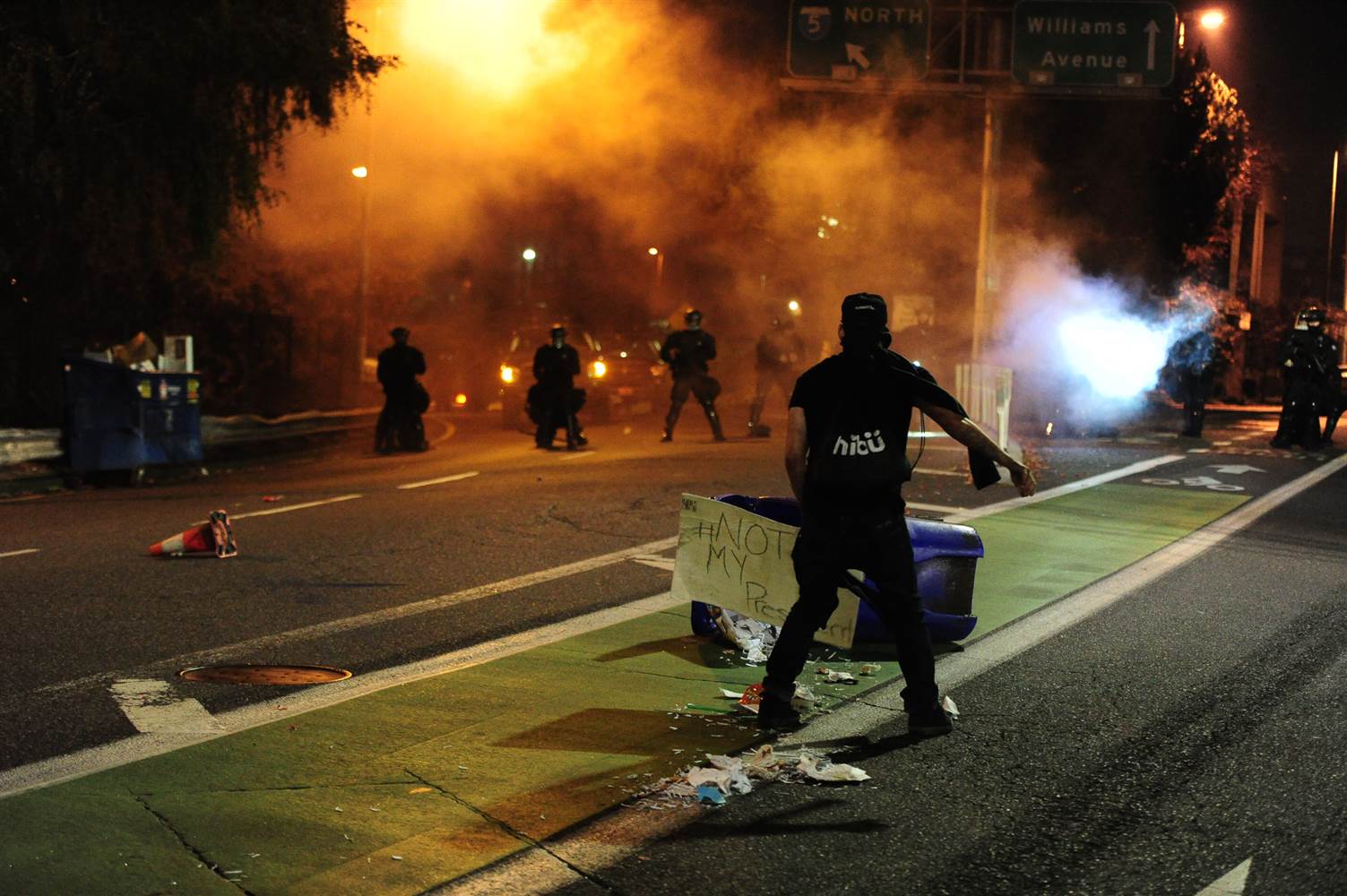The violence in American cities shakes up a whole nation and we immediately look for people to blame.
That’s the problem.
The mark of Cain in the human condition is that we always, instinctively look for someone to blame: someone else. Anyone else.
If there is a problem on an individual level or community level we become defensive, justify ourselves and seek to shift the blame.
It’s there in that most profound of stories–the Garden of Eden.
Father God: Adam. Did you eat of the fruit of the Tree of the Knowledge of Good and Evil?
Adam: The woman made me do it.
Father God: Eve?
Eve: The devil made me do it.
Bingo. There it is. Right at the beginning.
The need to blame lurks like a dark shadow in the heart of man, and when blaming does not solve the problem the person doing the blame does not come back to blame themselves, but continues the cycle of blame.
The need to blame becomes more urgent. The evil of the other person or group of persons being blamed becomes greater in the blamer’s imagination.
A scapegoat is found, and that person or group become the focus of all evil. Everything is their fault. Everything evil is laid at their feet, and once they become the locus and focus for evil it is not long before they can be destroyed, and not only destroyed, but the blamer will feel good for doing so.
All the evil is placed upon the scapegoat and then the scapegoat can be destroyed–and if the scapegoat is destroyed through violence even better for the violence has always been lurking within the blaming mechanism.
The violence has always been seeking a way of expression. The violence, by its very nature, needs to be vented and needs to be directed towards someone or some group.
This is the underlying cause of social violence. It has little to do with the police killing an unarmed man. It has everything to do with the underlying cycle of blame that lies at the depth of society and therefore at the depth of a multitude of human hearts.
Who is to blame? The rich people say the indigent poor are to blame. The poor say the greedy rich are to blame. The blacks say the whites are to blame. The whites say the blacks are to blame. The Jews blame the Palestinians. The Palestinians blame the Jews. The Protestants blame the Catholics. The Catholics blame the Protestants. The young blame the old. The old blame the young. The men blame the women. The women blame the men.
You see how it goes.
In the end, who is to blame?
Who is to blame?
We all are.
Each one of us indulge into in the scapegoating instinct. We blame our parents. We blame our spouse. We blame our kids. We blame our neighbor. We blame our boss. We blame our kids’ teacher. We blame the pastor. We blame the police. We blame the president. We blame the bishop. We blame anybody and everybody.
Who is to blame?
I am
One of the greatest feats of concise and profound writing is Chesterton’s famous letter to The Times. The editors had asked what is wrong with the world, and the portly prophet wrote,
Dear Sir,
What is wrong with the world?
I am
Yours Sincerely,
G.K.Chesterton
What is the solution? The only solution is a heart of repentance.
The simplicity of the Christian solution is to never shift the blame, but to always take the blame. The very first step of all is to say with one’s whole heart, mind and strength, I am part of this. I want to pick this up and offer this up somehow for the world’s redemption.
Repentance is not simply saying “Sorry” for the naughty things I’ve done, but it is saying “Sorry” for the sins of the whole world. It is saying with the Lord Christ, “I will not shift the blame. I will take the blame.”
The only prayer is the repetition like a heartbeat of “Lord, Jesus Christ, Son of God, Have Mercy on me a Sinner.”
Finally, this is what I should do every time I celebrate Mass and this is what every Catholic should do every time they go to Mass: they should be taking not just their sins and worries and doubts and fears to the forgiving altar of God, but they should, in their own humble way be bringing the sins of the whole world.
Each one of us should be bringing these burdens and putting them on the altar and allowing the great transaction of Christ’s death gather them up yet again bringing even a glimmer of reconciliation and hope to a world locked in the endless cycle of violence, revenge and blame.
These themes are explored in more detail in my book Immortal Combat – Confronting the Heart of Darkness.






